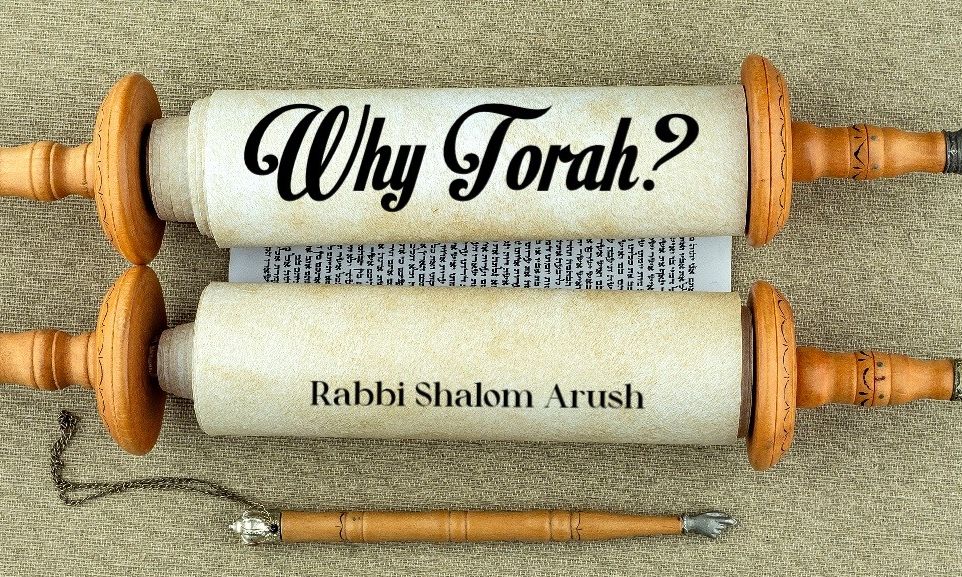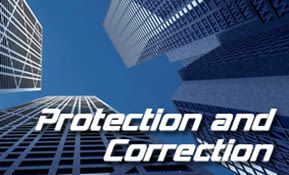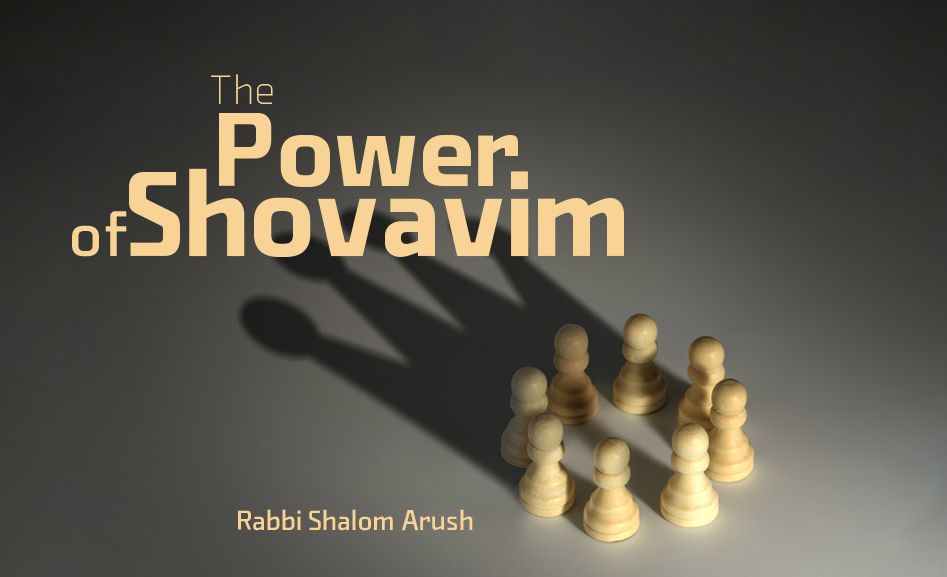
Why Torah?
On Shavuot, we received the Torah and renewed our connection with Torah. A person might ask, "Isn't it sufficient to be a good person? Who needs Torah?"

Since Passover, we’ve been learning a chapter of the Mishna in tractate Avot, known as Pirkei Avot or the “Ethics of the Fathers”, every Shabbat. It says, “An imbecile doesn’t fear Hashem and a crude person is not pious.” If a person desires to be the type of G-d fearing individual who avoids tiny transgressions as well as serious ones, then he must understand the tremendous importance of learning Torah and set aside time for daily Torah study. His entire profile as a human, particularly his personal holiness, depends on his relationship to Torah. That’s why it’s so important to renew our relationship with Torah every year on Shavuot.
In order to rectify that which needs rectification, prayer alone is not sufficient. In addition to its ability to sanctify a person, learning Torah is a critically important mitzva, for our sages say that Torah learning outweighs everything. Rebbe Nachman adds that Torah learning stands higher than all other mitzvot.
A person must learn all the details of what the Torah permits and what it forbids. The Torah teaches us what Hashem wants from us, the duties of the heart as well as the duties of the limbs. Rebbe Shneur Zalman of  Ladi osb”m says that a person must first know the practical laws that govern his daily life, as well as the foundations of Torah and emuna. By learning Torah, one acquires the fear of Hashem.
Ladi osb”m says that a person must first know the practical laws that govern his daily life, as well as the foundations of Torah and emuna. By learning Torah, one acquires the fear of Hashem.
Once one learns the practical laws that he needs to know, learning the ethics of the Torah, or mussar, and the traditional homiletics of Torah, or Midrash, help him appreciate the importance and the vast benefits of personal holiness. These texts arouse the heart and enthuse the individual to strive for greater heights. They also help him realize the devastating damages of a lack of holiness. Inasmuch, the Torah is the best impetus for self-improvement.
When the Chafetz Chaim osb”m saw the breaches of wholesome speech that plagued his generation, he wrote his classic book, “Guarding the Tongue” which compiled the Torah’s many scattered laws and sources that govern wholesome speech in order to enthuse and encourage people to better themselves in this area. He also made life easy for anyone who seeks to rectify his or her speech by compiling all that one needs to know on the subject into one concise volume. When citing the main reasons for laxity in this area, the Chafetz Chaim writes, first – a lack of knowledge; and second, the increased strength of the evil inclination. Learning Torah has the power to eradicate both ignorance and the evil inclination.
The principles that the Chafetz Chaim cited in regard to guarding the tongue also apply to guarding the eyes and personal holiness. As we cited earlier, there is tremendous ignorance about the importance of guarding one’s eyes, for many think that it’s a matter for the pious only and not for “normal” people. They don’t realize that it affects their observance of the Ten Commandments as the Rambam explains in the laws of teshuva. The Zohar says that as there is a general evil inclination, there is a tremendous evil inclination of impurity that tries to keep a person away from personal holiness. Let’s stop and think: if the Torah warns so vehemently about eating the blood of an animal, and this is something that disgusts most people anyway, how much more so should we fight to rid ourselves of lust, for this is something that people crave.
The Torah’s main benefits are in the following areas:
1. Clarification of what is forbidden and what is permissible;
2. Learning how to avoid and overcome the forbidden;
3. Gaining the desire to avoid and overcome the forbidden, while acquiring the tools to do so.
A person can’t win a war without the proper weaponry. The Torah, and particularly the elaborations and advice of the righteous tzaddikim, are the arsenal one needs to defeat the evil inclination, to resist temptation and to rid himself of lust. Once we learn Torah and know what we must do, we have to seek Hashem’s help in personal prayer and incessant pleading, for without His assistance, no one can prevail over the evil inclination.
If a person doesn’t learn Torah, how can he know what to pray for? When he doesn’t differentiate between the forbidden and the permissible, there’s no way that he can avoid transgressing, especially when he perceives that his repeated sins are a permissible form of deportment. As such, King David begs Hashem in Psalm 119, “Open my eyes so I shall see the wonders of Torah” – he wanted to make sure that he would do Hashem’s will, with no tiny detail escaping his eyes. Once a person learns the truth and the principles of Torah, he can originate his own lovely personal prayers based on what he learned, asking Hashem to help him internalize and implement all that he learned. As such, Rebbe Nachman writes, “It’s good to convert your learning into prayer.” When we hear a Torah lesson or learn something new, we should pray to Hashem to be able to implement it and put it into practice in our daily lives. Such prayers are extremely gratifying to Hashem, for learning Torah in order to fulfill what we learn is a most commendable level of learning.
An additional reason why Torah learning is necessary for acquiring holiness is that one’s holiness depends on one’s prayers, especially personal prayers; one’s Torah learning facilitates the ascent of one’s prayers and assures that they will be accepted. Rebbe Nachman writes, “Know, that by way of the Torah, all one’s prayers and requests are accepted”, for the Torah enhances the “charm and prestige” of Israel, both materially and spiritually (see Likutei Moharan I:1). In contrast, King Solomon says, “One who removes his ear from listening to Torah, his prayer is an abomination” (Proverbs 28:9). Torah and prayer therefore go together and illuminate one another.
Rebbe Nachman once told Rebbe Natan that the Torah is so powerful that it can rehabilitate the worst sinner. Rebbe Natan writes (Likutei Halachot, Betziat HaPat, 5):
“One wages war against the evil inclination by way of the Torah…as Rebbe Nachman told me emphatically, ‘You have no idea of the Torah’s power’. He explained that there are sinners who think that they’ll be trapped in transgressions forever. But, if they take upon themselves regular daily Torah learning, the Torah will give them power to overcome, and in the end, they too will be rectified.” May we all so merit, amen!







Tell us what you think!
Thank you for your comment!
It will be published after approval by the Editor.